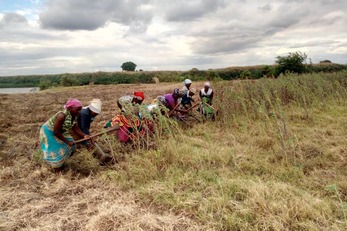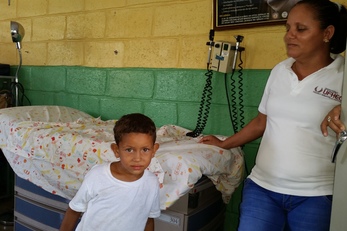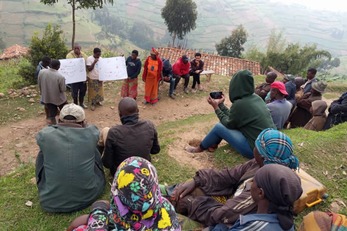








Innovation in cervical cancer screening: scaling up screening in Chikwawa district using EVA colposcope device
Project Launch: 12-23-19
Led by Dr. Zayithwa Fabiano, a youthful Mandela Washington Fellow, the Chatinkha Maternity Care Association (CHAMACA) will provide an innovative mobile cervical cancer screening service to women in Chikwawa district, Malawi. Using the EVA colposcope produced by Mobile ODT, CHAMACA will reduce distances and time women travel to access these specialized services. The device will also send real time images from remote areas to specialized doctors to review and make a diagnosis. This will enable nurses, doctors, and other health professionals screen more women at a time with higher accuracy and faster diagnosis. It will also allow any cervical cancer suspects to get immediate consultation from a specialist doctor who will be accessed remotely. Suspected patients will then be referred to the main government hospitals where they will be treated free of charge. The project will reduce the number of women dying from cancer due to being diagnosed late. CHAMACA will also use this project as a learning point for possible expansion to other districts.
Project Update: 8-20-20
This project, aimed at intensifying cervical cancer screening in Chikwawa District has managed to hold stakeholder meetings with various health workers and the community which later led to the establishment of the Chikwawa Cervical Cancer group at Queen Elizabeth Central Hospital comprised of the health workers to go out and do the cervical cancer screening. In addition, the project purchased an EVA colposcope device which will be used to fasten the screening process and health workers will be fully trained on the use of the device as the project progresses. The Coronavirus (COVID-19) pandemic has delayed the project timeline as the health workers involved have redirected their efforts to the pandemic. The outreach camps where the screening takes place have also been put on hold due to restrictions on large numbers of people assembling together. Despite the interruptions, the project will proceed their activities in September, 2020 and run through February, 2021.
Explore other Projects


A Computer Room for CEM 2 Ndioum
To provide knowledge for students, paving them the way to a better future and to success in their endeavor. ...Learn more



Farm Equipment Library for Haniro Cell, Rutsiro District
The Farmers' Club aims to provide farmers with necessary information and skills to increase their farm output and improve their farm produce through the use of modern methods of farming, use of improv... ...Learn more
